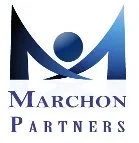Beyond skills: Looking at cultural fit in recruitment
The hires that have the strongest ROI are those that not only have the right skills and qualifications for the job, but whose personalities mesh with the culture of your company.
Hiring managers may worry about the impacts of bringing on a candidate who may exhibit a skills gap, however, it can be far more damaging in the long run to have an employee who just doesn't fit with the company's ethics, values and work environment. This is because while technical skills can be taught, buy-in with a company's culture cannot.
The costs of a poor cultural fit
Company culture is made up of many different elements, but together they represent what an organization believes is the "right" approach to business. This culture has its roots in more abstract, less tangible concepts, like moral beliefs and ethics, which are then reflected in concrete policies, such as paid time off arrangements and employee recognition programs. Company culture reflects what a business believes in, which may be values like collaboration, transparency or autonomy.
If an employee clashes with this culture – for example, is a highly independent and self-contained worker in an environment that prioritizes team work and the sharing of ideas, then he is likely to not be productive or engaged in their work, and will likely not stay at the company long. As such, managers want to hire employees whose personal values, ideas about work and personal and professional ambitions match well with those of their companies.
"A poor culture fit can cost a company 50 to 60 percent of the annual salary of the employee."
Culture clashes can mean the loss of many benefits for both company and employer. For example, a study published in the Journal of Organizational Behavior found that employees who were strong fits with the culture of their companies showed higher levels of job performance, satisfaction and loyalty, as Inc. magazine detailed.
Furthermore, a poor culture fit can cost a company 50 to 60 percent of the annual salary of the employee, according to the Harvard Business Review, citing data from the Society for Human Resource Management.
Hiring for cultural fit
With all these costs on the line, it's important that recruiters assess the cultural fit of job applicants.
Before trying to evaluate a candidate's cultural fit in a job interview, organizations should first take stock of their company culture and try to define it in tangible, easily explainable terms. Try to identify the cultural characteristics that make your company unique, TalentCulture recommended. Think about the values that the organization holds most important, and how these relate to achieving its business goal.
Once culture is better defined, recruiters and hiring managers can gain better insight into whether a candidate would be a good cultural fit during the interview process. In addition to technical-, skill- and experience-based questions, interviewers should also ask about the values that guide the candidate's work, what they look for in an office environment and a past example of how they dealt with a difficult situation at work, among related questions. If the answers seem to map to your company's culture, then you can feel more confident that you are making a hire with strong, long-term ROI.
Uncategorized
